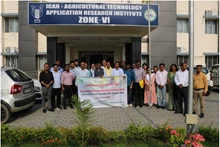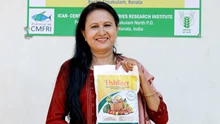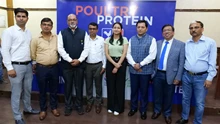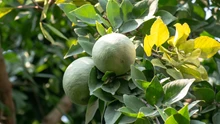
The Kasaragod-based Central Plantation Crops Research Institute’s (CPCRI) regional station took the initiative to distribute the coconut seedlings with QR code labels as a quality checking mechanism.
In order to avoid fraudulent QR code labelling, an alphanumeric password with a QR code has been introduced. He said the password-protected QR code allows only authorized persons, such as those who buy the seedlings, to get information about the seedling.
The QR code affixed labels is used for the purpose of tagging or labelling of grafts, buds, tissue-cultured or vegetatively-produced planting materials in plantation crops, fruit crops and commercial crops.
Farmers scanning the codes will instantly get details on the origin and variety of seedlings.
Many a time farmers are duped by people selling spurious seedlings of various crops. But what if the seller offers a facility where scanning a QR (quick response) code instantly gives the farmer information about the seedlings he purchased?
On scanning the QR code on the labels on individual coconut seedlings supplied by CPCRI’s Kayamkulam unit, the farmer can get specific information about the source and variety.

Muralidharan K, Principal Scientist at CPCRI, Kasaragod, said BNS Murthy, the Horticulture Commissioner of the Department of Agriculture, Cooperation and Farmers’ Welfare, New Delhi, visited CPCRI recently, and appreciated the initiatives of the institute in introducing QR code labels for coconut seedlings. The Government is thinking of introducing this to other perennial crops, he added.
Muralidharan further added that this security feature is critical at a time when spurious seedlings are being sold by vendors who claim to be distributors of planting materials of government agencies.
Regi Jacob Thomas, Principal Scientist at CPCRI Kayamkulam also added that until now around 25,000 coconut seedlings have been distributed with QR code labels.










